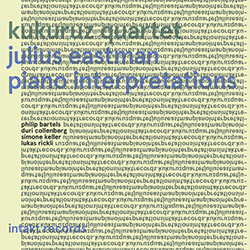
The Swiss Kukuruz Quartet of 4 pianists--Duri Collenberg, Lukas Rickli, Philip Bartels, and Simone Keller--continue their explorations of the works of late NY composer & pianist Julius Eastman, a pioneering figure in minimalism and an influential member of the 1980s Downtown New York scene; here in four works: "Fugue No.7", "Evil Nigger", "Buddha" and"Gay Guerrilla".
Out of Stock
Quantity in Basket: None
Log In to use our Wish List
Shipping Weight: 5.00 units
Sample The Album:
Julius Eastman-composer
Kukuruz Quartet-quartet
Duri Collenberg-piano
Lukas Rickli-piano
Philip Bartels-piano
Simone Keller-piano
Click an artist name above to see in-stock items for that artist.
UPC: 7640120193065
Label: Intakt
Catalog ID: ITK306.2
Squidco Product Code: 26032
Format: CD
Condition: New
Released: 2018
Country: Switzerland
Packaging: Jewel Case
Recorded at Radio Studio, in Zurich Switzerland, on November 29th, 30th, and December 1st, 2017, by Michaela Wiesbeck.
"Kukuruz began their partnership with Julius Eastman and his musical works in 2014. In 2017, their performance at 'documenta 14' in the Megaro Mousikis concert hall in Athens earned a standing ovation. They performed works by Julius Eastman: 'Evil Nigger', 'Gay Guerrilla', 'Buddha' and 'Fugue No. 7.' The recording of these compositions followed in November 2017 on four Steinway D pianos in the main hall of the historic Radiostudio Zürich.
Composer, trombonist and scholar George E. Lewis, who knew Eastman personally and played with him, writes in the liner notes: "This brilliant recording by the Kukuruz Quartet constitutes an important new contribution to the growing corpus of performances of music by the composer, pianist, and singer Julius Eastman (1940-1990), who came to prominence in the experimental music scene of the 1970s and 1980s ... On this recording, the Kukuruz Quartet renders Eastman's spirit of adventure audible and sensuous, exemplifying a new, creolized formation of contemporary classical music that is able to embrace a multicultural, multi-ethnic usable past and thinkable future that can affirm our common humanity in the pursuit of new music." -Intakt
"The Kukuruz quartet was founded in 2014 as part of a music theater production by Ruedi Häusermann to play music for four "well-prepared one-handed pianos". It is therefore an extraordinary formation, for which there is almost no conventional repertoire. The musician and the musicians develop joint preparations and constructions for a long time. The Kukuruz Quartet is equally at home on theater stages and in concert halls. It was invited to the Red Salon of the Berliner Volksbühne in 2015 and subsequently played in a concert series in the Zurich clubs Exil and Hive and at various extraordinary concert venues in Amsterdam, such as a brewery, a printing press or an old gymnasium. In 2016, the music theater production "piano forte" by Ruedi Häusermann followed, which was shown 20 times in the sold-out Schauspielhaus Zürich and at the center of which the Kukuruz Quartet could be seen and heard.
In addition, the Kukuruz Quartet orchestrated the Zurich refugee choir by Christoph Homberger and organized a festival of prepared piano music at the Schlosserei Nenniger in Zurich, played at the Mega concert in Athens during documenta 14 and will travel to South America for the first time in 2018 for concerts and workshops , The Kukuruz Quartet works closely with composers. In 2015 and 2016, two music theater productions were created in the Zurich Architecture Forum with electroacoustic music by Marcel Zaes, for which the quartet experimented with a multitude of instruments, assembled homemade metronomes into a virtuoso quartet or with self-soldered contact microphones Everyday objects made sound. The quartet is currently planning premieres by Lara Stanić, Martin Lorenz and Léo Collin, and will continue the collaboration with Marcel Zaes."-http://www.kukuruzquartett.ch/, Translated by Google
Artist Biographies
• Show Bio for Julius Eastman "Julius Eastman was born on October 27, 1940 (to May 28, 1990). He was an accomplished composer, pianist, vocalist, and dancer of minimalist tendencies. Julius Eastman grew up in Ithaca, New York, where he worked in his teen years as a paid chorister. He gained plenty of regional attention with his wonderful voice, and began his piano studies at age 14. After only six months of practice, he was playing Beethoven and other challenging classical composers. Eastman attended Ithaca College and transferred to the Curtis Institute of Music, where he studied piano with Mieczyslaw Horszowski and composition with Constant Vauclain. After a few months, Eastman switched his major from piano to composition. Eastman made his debut as a pianist in 1966 at Town Hall in New York City. He possessed a rich baritone voice that caught the attention of the symphonic world when he recorded the 1973 Grammy-nominated Nonesuch recording of British composer Peter Maxwell Davies' "Eight Songs for a Mad King." Eastman's talents as a composer impressed the celebrated composer and conductor, Lukas Foss. In 1970, Eastman joined the Center for the Creative and Performing Arts at the State University of New York at Buffalo, where he met the Czech-born composer, conductor, and flutist Petr Kotik. Eastman and Kotik performed together extensively in the early to mid-1970s, and he became a founding member of the S.E.M. Ensemble, with whom he performed, toured, and composed numerous works. Many of the earliest performances of Eastman's works were given by the Creative Associates Ensemble of University at Buffalo, of which he was also a member beginning in 1968. He taught theory while at the University at Buffalo, but left over what he described as "creative differences." Eastman had hoped to transition to a similar position at Cornell University, in his hometown of Ithaca, but they quickly backed away, and it failed to materialize. Eastman eventually moved to New York City, where he was associated with the Brooklyn Philharmonic, then led by his friend Lukas Foss. Eastman became a pioneering figure in minimalism, and an influential member of the 1980s Downtown New York scene. He performed in jazz groups with his brother, Gerry Eastman, a guitarist and bass player in many jazz ensembles, including the Count Basie Orchestra. Ironically, the only work by Julius Eastman registered with the U.S. Copyright Office is as a lyricist, with his brother Gerry listed as the composer. Julius Eastman was a composer of works that were minimal in form but maximal in effect. His compositions were often written according to what he considered an "organic" principle, by which each new section of a work contained all the information from previous sections, though sometimes "the information is taken out at a gradual and logical rate." The principle is most evident in his three works for four pianos, "Evil Nigger," "Crazy Nigger," and "Gay Guerrilla," all from around 1979. The last of these, an expansive and emotional work, appropriates Martin Luther's hymn "A Mighty Fortress Is Our God" as a gay manifesto. Eastman's "Stay On It" from 1973 was an influential post-minimalist piece that incorporated pop music influences. He frequently performed with the Experimental Intermedia Foundation, and participated in music symposia with Morton Feldman and John Cage. A 1980 selection for Eastman's voice and cello ensemble, "The Holy Presence of Jeanne d'Arc," was performed at The Kitchen in New York City, and he lent his vocal strength to Meredith Monk's ensemble for her influential album, "Dolmen Music," in 1981. In 1986, choreographer Molissa Fenley used his work "Thruway" for a dance called "Geologic Moments" at the Brooklyn Academy of Music. Julius Eastman was a man seemingly balanced between irreconcilable extremes. He was brilliant, but suffered from extreme bouts of schizophrenia; he was celebrated as a star in the avant-garde world of classical music, but was occasionally homeless and sleeping in Manhattan's Tompkins Square Park. But perhaps the greatest difference was addressed by one of Eastman's colleagues who stated simply, he was "a Black, gay man rattling around loudly in the white, constrained world of classical music. Eastman was a living testament to unbounded American opportunity and woeful American inequality." Eastman's mercurial artistry often reflected those conflicting paradigms in his world. His compositions exposed a confrontation that he saw between Western and African music, and conflicting notions of beauty. Eastman's music could comfort one moment and agitate the next. But in the end, he may have been a man who despite his immense intellect and talent, thrashed himself apart trying to live too many contradictions. Eastman also battled alcoholism and drug addiction. He could be immensely charming, but also an acrid, seething, and occasionally impossible man. Sometimes when he spoke, it was difficult to detect if he was being hurtful or humorous. His temperament can even be detected in the titles he assigned his compositions: "If You're So Smart, Why Aren't You Rich," "Evil Nigger," and "Gay Guerrilla." The language was so acidic, it ate away at the concert hall universe, and was perhaps a fitting gesture for someone who saw as much rank hypocrisy as opportunity within its walls. Despondent about what he saw as a dearth of professional possibilities worthy of him, Eastman grew increasingly dependent on alcohol and other drugs after 1983, and his life began to fall apart. At one point, he was evicted from his apartment, his belongings (including most of his music scores) abandoned curbside. Despite an unsuccessful attempt at a comeback, he shuffled between friends' homes in New York City and Buffalo, and slipped into obscurity. Julius Eastman and I had a mutual friend, upon whose doorstep Eastman would occasionally appear. He would stay for a while, and then vanish under the premise of a new musical collaboration or project that required his presence. His friend, John Crawford, had a spacious apartment in a very elegant rowhouse in downtown Buffalo. He also had a stunning, burled rosewood Steinway Grand in his parlor, that Eastman reportedly never touched. It appears his disconnection from his musical past was becoming complete. At his final visit to Buffalo, Julius Eastman was very, very ill. I spoke to him briefly, but was disturbed to see him in such deep crisis. He suffered from insomnia, was emotionally distressed, and, as I recall, very paranoid-certain that the music world was out to destroy him. But the more pressing issue was his rapidly failing health from the effects of AIDS. Within days, Eastman would be rushed to Buffalo's Millard Fillmore Hospital, where he died three days later, on May 28, 1990, from AIDS-related, cardiac arrest. Julius Eastman had descended so far from the public eye that no notice was given to his death until an obituary by Kyle Gann appeared in the "Village Voice" on January 22, 1991, eight months after he died. Eastman's notational methods were loose and open to interpretation, and consequently, any revival of his music has been a difficult task, dependent on the generous efforts of people who worked with him. Many of his compositions and recordings were discarded when he was evicted. But there are some amazing musicians, who are working tirelessly to collect, preserve, and perform his compositions, and keep his unique musical presence available for generations to come. Eastman's music continues to be heard around the world. In December of 2016, the world's first Eastman retrospective took place at the London Contemporary Music Festival, and included a presentation of seven Eastman works and an exhibition, spread over three nights. The following May, "That Which Is Fundamental," a four-concert retrospective and month-long exhibition of Eastman's work was hosted at Bowerbird in Philadelphia, produced in collaboration with the Eastman Estate. We remember Julius Eastman, and thank him for his unique artistry, and his contributions to our cultural landscape and community." ^ Hide Bio for Julius Eastman • Show Bio for Duri Collenberg Duri Collenberg is a Swiss pianist, born 1985 in Chur, Switzerland, and is a mamber of Kukuruz Quartet. ^ Hide Bio for Duri Collenberg • Show Bio for Lukas Rickli "Born in 1986, studied piano at the University of Music in Basel with Jean-Jacques Dünki, composition with Balz Trümpy and Jakob Ullmann, as well as free improvisation with Alfred Zimmerlin and Fred Frith. After two successful master's degrees in music education and contemporary music, Lukas Rickli lives as a freelance pianist and piano teacher with his family in Basel. Various projects as an improviser, as a chamber musician and as a band member lead him on concert tours in Germany and abroad." ^ Hide Bio for Lukas Rickli • Show Bio for Philip Bartels "Philip Bartels, born 1978 in Berlin (East) and grew up on the Polish border on the island of Usedom, has been living in Switzerland since 2002, where he graduated with Stephan Müller at the Hochschule für Musik und Theater Zürich. He also studied composition for stage and film with André Bellmont. After completing his studies, he worked as a theater and musical theater director at the Biel/Solothurn and St. Gallen city theaters, and as a freelance director had productions in Switzerland at, among others, the Zurich Theater Rigiblick, the Basel Gare du Nord, the Lokremise St Gallen and the South Pole of Lucerne. Many of his works are also shown in unusual places, such as the open-air musical "Mordnacht" in the Luzerner Stadthauspark, the musical "Things to do systematically at times" in the Architekturforum Zürich and the chamber light opera "Docteur Miracle" in the cinema Alass Zofingen. For a number of years, he has been working together with contemporary music ensembles such as the Ensemble für Neue Musik Zürich, with whom he staged the premiere of Daniel Fueter's opera "Trout Stanley" and the ensemble TaG for Neue Musik Winterthur, with whom he performed at the Theater am Gleis The experimental music theater productions "more or less normal" and "elephants in space". In addition to his work as a director, Philip Bartels composes and arranges for various formations and with a preference for extraordinary compositions and configurations - such as his composition for enhanced clavichord, monophonic synthesizers and guitar effect pedals, or his arrangement of a baroque Concerto Grosso for piccolo, tuba and strings. At the Davos Festival in 2016, his work on the Weigl opera "The Swiss Family" was premiered, during which he reinterpreted the orchestral music of the Viennese Classic for a ten piece chamber music ensemble with two drummers and prepared piano. The film "Connie" by Judith Kurmann with his film music won the Prix Action Light at the Locarno Festival in 2009 and the Federal Statistical Office awarded two compositional assignments for the setting of historical documentary films (→). In 2016 Philip Bartels, as director and arranger, realized an extensive musical "Der schönste Tag" ("The most beautiful day") with choir, soloists and actors incorporating all styles and categories in collaboration with the HORA theater utilizing people with and without cognitive impairment. Philip Bartels also takes to the stage, most recently with the Kukuruz Quartet in a production by Ruedi Häusermann at the Schauspielhaus Zürich and, together with Simone Keller, is leading the free group "ox&öl". Music workshops for children with an migration background, such as "Piccolo Concerto Grosso", an intergenerational project that has been performed in recent years at, among others, the KKL Luzern and the Zurich Tonhalle, and a speech-musical theater for the unemployed and various composition courses for children." ^ Hide Bio for Philip Bartels • Show Bio for Simone Keller "The Swiss pianist Simone Keller (* 1980) completed her training in the concert class of Hans-Jürg Strub at the Zurich University of the Arts. In addition, she attended master classes with Andrzej Jasinski, Siegfried Mauser, Karl Engel and Hartmut Höll. She has received several prizes, awards and scholarships, such as first prize at the Landolt Competition for Piano, second prize at the Hans-Ninck-Competition for Piano, and the EMCY Chamber Music Award at the European Classic Festival Ruhr. Simone Keller performs as a soloist and chamber musician in a wide variety of formations and styles, with lively concert activity in Switzerland and many other countries. In recent years, she has appeared at the New Music Week in Shanghai, the Roulette and Symphony Space in New York, Constellation in Chicago, Opensound in Boston, CCRMA in San Francisco, Sonic Arts Exchange in Seoul, Hong Kong and Macau, at Fondation Suisse and Cité Internationale des Arts in Paris, Days for New Music in Bucharest, Kölner Philharmonie, Konzerthaus in Vienna, Weimarer Frühjahrstage, Mozarteum in Salzburg, Klangspuren in Schwaz, Megaron in Athens and the Imatronic Festival for Electronic Music at ZKM Karlsruhe, in Switzerland in Tonhalle Zurich, KKL Luzern, Dampfzentrale Bern, Studio Ernest Ansermet in Geneva, Gare du Nord Basel, Schlosskonzerte in Thun, Davos Festival and Klavierissimo Wetzikon. Since 2007, Simone Keller has been a member of the ENSEMBLE TZARA (www.ensembletzara.ch), which was awarded the Zurich Werkjahr in 2012. In addition, she plays in many other formations, such as Retro Disco, which in the past few years has starred in premieres by Robert Ashley and Alvin Lucier, the Trabant Echo Orchestra, a quintet with strings and drums playing minimal music such as "In C" by Terry Riley or Kukuruz Quartet (www.kukuruzquartett.ch) which features four pianists and sheds new light on the music of Julius Eastman. Kukuruz Piano Quartet has presented its programs in all over Europe with great success and to broad critical acclaim. Some of the places where the Quartet has performed include Documenta 14 in Athens (Megaron Concert Hall), Volksbühne Berlin and Schauspielhaus Zurich. Simone Keller regularly performs as a guest artist at the Musikkollegium Winterthur and the Südwestdeutschen Philharmonie and was invited by Ensemble Contrechamps from Geneva, the Austrian Ensemble for New Music, the Glassfarm Ensemble New York and the Hong Kong New Music Ensemble. From 2006 to 2014, she worked extensively as a guest musician of the Collegium Novum Zürich and with conductors such as Peter Rundel, Jonathan Stockhammer, Pablo Heras-Casado, Peter Ruzicka, Peter Hirsch, Heinz Holliger and Johannes Kalitzke. From 2008 to 2016 she was a permanent member of the Ensemble TaG for New Music in Winterthur, with whom she participated in numerous premieres of particularly rare works of composers. Simone Keller owes an important part of her artistic development to numerous composers, including Robert Ashley, Wanja Aloe, Darija Andovska, Saskia Bladt, Edu Haubensak, Frederick Rzewski, Katharina Rosenberger, Timothy McCormack, Juhee Chung and Alvin Lucier, Isabel Mundry, Marko Nikodijevic, Diana Rotaru, David Sontòn Caflisch, Bruno Karrer, Pierre Favre, Oliver Weber, Marcel Zaes and Alfred Zimmerlin. In addition, her continuous work as a theater musician plays an important role. Simone Keller worked as a pianist and actress in countless productions at the Schauspielhaus Zürich, Theater Basel, City Theater Bern, Theater Neumarkt in Zurich, Theater Chur, Schlachthaus Theater Bern, Theater Rigiblick Zürich, Theater Winterthur and the Theater at Gleis Winterthur with directors such as Ursina Greuel, Ruedi Häusermann, Joachim Schloemer and Fritz Hauser. 2014 Simone Keller and Philip Bartels founded ox&öl (www.oxoel.ch) a music and theatre company which also develops the latest forms of education projects for children and adults, such as the Intergenerationen-Musikwerkstatt "Piccolo Concerto Grosso" which was developed in collaboration with the Lucerne Symphony Orchestra. ox&öl received several charity awards for their campaigns. Simone Keller has recorded for the Böhlau Verlag in Vienna Galina Ustwolskajas piano sonatas, has performed various solo and chamber music recordings in collaboration with the SWR Experimentalstudio, the Swiss Radio DRS and SRF, Musiques Suisses, Intakt Records and Quilin Records. Currently Simone Keller lives in Belgrade." ^ Hide Bio for Simone Keller
11/20/2024
Have a better biography or biography source? Please Contact Us so that we can update this biography.
11/20/2024
Have a better biography or biography source? Please Contact Us so that we can update this biography.
11/20/2024
Have a better biography or biography source? Please Contact Us so that we can update this biography.
11/20/2024
Have a better biography or biography source? Please Contact Us so that we can update this biography.
11/20/2024
Have a better biography or biography source? Please Contact Us so that we can update this biography.
Track Listing:
1. Fugue No.7 8:24
2. Evil Nigger 21:33
3. Buddha 16:44
4. Gay Guerrilla 30:03
Intakt
Compositional Forms
Quartet Recordings
Piano & Keyboards
NY Downtown & Metropolitan Jazz/Improv
New in Compositional Music
Search for other titles on the label:
Intakt.


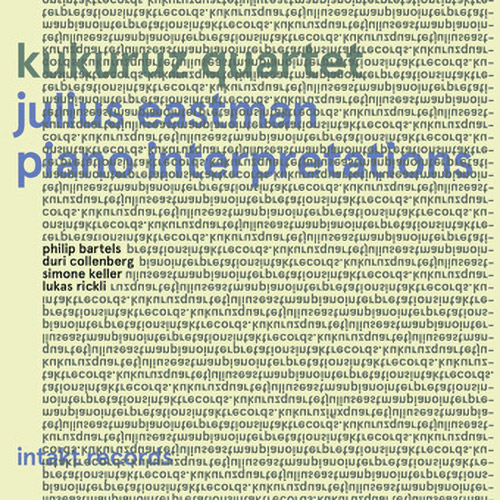



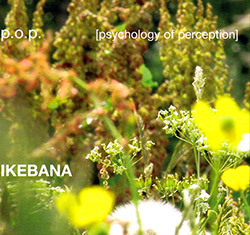

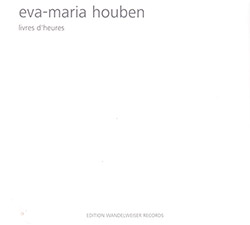

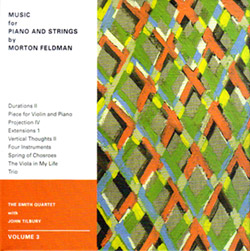

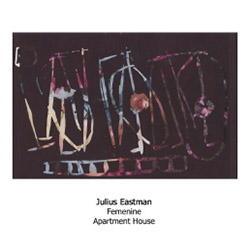








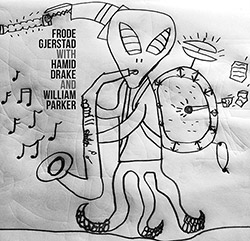


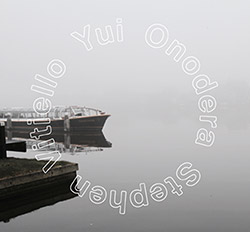

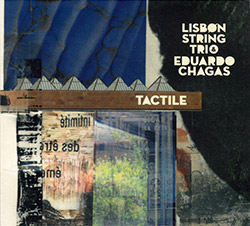




![Guy, Barry / Ken Vandermark: Occasional Poems [2 CDs]](https://www.teuthida.com/productImages/misc4/34849.jpg)
![Novoa / Carter / Mela Trio: Vol.1 [VINYL]](https://www.teuthida.com/productImages/misc4/35236.jpg)


![Elephant9 : Mythical River [VINYL]](https://www.teuthida.com/productImages/misc4/34624.jpg)
![Evans, Peter (Evans / Eldh / Black): Extra [VINYL]](https://www.teuthida.com/productImages/misc4/35279.jpg)

![McPhee, Joe: Straight Up, Without Wings [BOOK]](https://www.teuthida.com/productImages/misc4/35454.jpg)
![Jeck, Philip: rpm [2 CDs]](https://www.teuthida.com/productImages/misc4/35455.jpg)













![Barker / Parker / Irabagon: Bakunawa [VINYL]](https://www.teuthida.com/productImages/misc4/35533.jpg)
![Blaser, Samuel / Marc Ducret / Peter Bruun: Dark Was The Night, Cold Was The Ground [VINYL 10-inch]](https://www.teuthida.com/productImages/misc4/35492.jpg)








![Warren, Kenny (Warren / Hoffman / Ellman): Sweet World [VINYL]](https://www.teuthida.com/productImages/misc4/35451.jpg)




![Blake, Ran / Dave Knife Fabris: Live Amsterdam 2006, First Visit [CD + POSTCARDS]](https://www.teuthida.com/productImages/misc4/35275.jpg)













![DNS: Taking Big Bites Of The Khandas Three Cafes Deep [2 CDs]](https://www.teuthida.com/productImages/misc4/35334.jpg)




![Cleaver, Gerald: The Process [VINYL]](https://www.teuthida.com/productImages/misc4/34966.jpg)




![Alva Noto: HYbr:ID II [VINYL 2 LPs]](https://www.teuthida.com/productImages/misc4/35201.jpg)

![Baron, Derek / Luke Martin: Distinct and Concealed [CASSETTE + DOWNLOAD]](https://www.teuthida.com/productImages/misc4/35079.jpg)

![Lyle, Erica Dawn : Colonial Motels [CASSETTE + DOWNLOAD]](https://www.teuthida.com/productImages/misc4/35080.jpg)









![Sanna, Claudio: Compositori Sardi Contemporanei II [2 CDs]](https://www.teuthida.com/productImages/misc4/35317.jpg)







![Zurria, Manuel: Fame di Vento [3 CDs]](https://www.teuthida.com/productImages/misc4/35167.jpg)

![Granberg, Magnus / Nattens Inbrott / Skogen: Holde Traume, Kehret Wieder! [2 CDs]](https://www.teuthida.com/productImages/misc4/35038.jpg)
![Frey, Jurg: Outermost Melodie [2 CDs]](https://www.teuthida.com/productImages/misc4/35039.jpg)

![Pavone, Jessica: Reverse Bloom [VINYL]](https://www.teuthida.com/productImages/misc4/34895.jpg)




![Modney (Modney / Wooley / Gentile / Roberts / Pluta / Symthe / ...): Ascending Primes [2 CDs]](https://www.teuthida.com/productImages/misc4/34852.jpg)









![Elephant9 with Terje Rypdal: Catching Fire [VINYL 2 LPs]](https://www.teuthida.com/productImages/misc4/35355.jpg)
![Deerlady (Obomsawin, Mali / Magdalena Abrego): Greatest Hits [VINYL]](https://www.teuthida.com/productImages/misc4/34876.jpg)




![Haino, Keiji: Black Blues [2 CDs]](https://www.teuthida.com/productImages/misc4/35109.jpg)



![Surplus 1980: Illusion of Consistency [CD]](https://www.teuthida.com/productImages/misc4/35069.jpg)
![Staiano, Moe: Away Towards the Light [VINYL + DOWNLOAD]](https://www.teuthida.com/productImages/misc4/35037.jpg)



![Caveira (Gomes / Sousa / Abras / Ferrandini): Ficar Vivo [VINYL]](https://www.teuthida.com/productImages/misc4/34643.jpg)
![Gregg, J. J. / David Van Auken: Lunar Prairie [CD w/ DOWNLOAD]](https://www.teuthida.com/productImages/misc4/34611.jpg)

![Coultrain: Mundus [VINYL]](https://www.teuthida.com/productImages/misc4/32439.jpg)
![Mattin: Songbook #6 [VINYL]](https://www.teuthida.com/productImages/misc4/27317.jpg)
![Punkappella: Wake Up [7-inch VINYL]](https://www.teuthida.com/productImages/misc4/17519.jpg)
![Residents, The: WARNING: UNiNC.: Live And Experimental Recordings 1971-1972 [VINYL 2 LPs]](https://www.teuthida.com/productImages/misc4/31521.jpg)
![Coultrain: Phantasmagoria [VINYL]](https://www.teuthida.com/productImages/misc4/30142.jpg)
![Lennon, Sean Ono: Asterisms [VINYL]](https://www.teuthida.com/productImages/misc4/34517.jpg)

![Coley, Byron: Dating Tips for Touring Bands [VINYL]](https://www.teuthida.com/productImages/misc4/17906.jpg)

![Lost Kisses: My Life is Sad & Funny [DVD]](https://www.teuthida.com/productImages/misc4/lostKissesDVD.jpg)